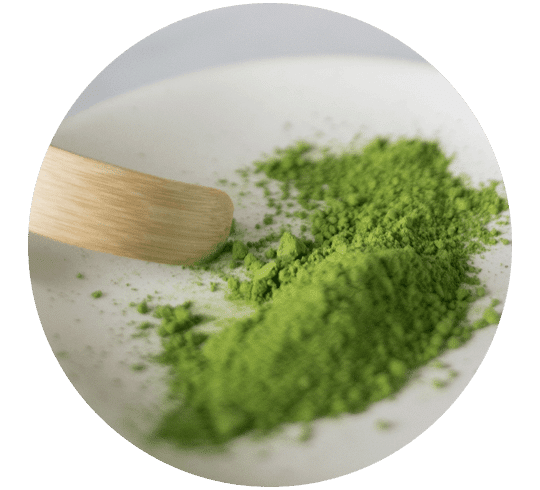Kratom is an all-natural herb that has become popular in the United States in recent years as a way to soothe pain, anxiety, and opioid withdrawal. Some people also use it as a recreational drug. Kratom is not currently regulated by the Drug Enforcement Administration (DEA), but it is banned in some states. Some medical professionals believe kratom may be addictive and potentially dangerous.
What Is Kratom, and Where Does it Come From?
Kratom (Mitragyna speciosa) is a tropical evergreen tree from the coffee family, native to Southeast Asia. The leaves of the kratom tree are traditionally used for their medicinal properties. Indigenous people in Southeast Asia have long used kratom for its stimulant effects. In low doses, kratom leaf powder can provide stimulating effects similar to coffee. In higher doses, it can produce sedative effects.

Why Do People Take Kratom?
People who take kratom for non-recreational purposes say it has certain health benefits. There is no clinical research to back up these reports, but some kratom users say kratom produces effects that:
- Relieve pain
- Treat diarrhea
- Reduce anxiety and depression
- Increase energy levels
- Boost immunity
- Aid weight loss
Kratom can be addictive because it binds to opioid receptors in the brain, and when it wears off, users can feel depressed and anxious. Withdrawal from kratom can be severe, including symptoms such as muscle aches, diarrhea, and insomnia.
How Do You Take Kratom?
People who use kratom take it in a variety of ways, including:
- Swallowing kratom powder
- Mixing kratom powder with water or juice and drinking it
- Smoking dried kratom leaves
- Chewing on kratom leaves
What Are the Side Effects of Kratom?
Like all other psychoactive drugs, kratom use is not without the risk of side effects. According to the DEA, kratom’s side effects include:
- Nausea
- Itching
- Sweating
- Dry mouth
- Constipation
- Increased urination
- Fast heart rate
- Vomiting
- Drowsiness
- Loss of appetite
In general, the most common side effect of kratom is nausea, although this is typically only experienced when taken in large doses. Other potential side effects of kratom include:
- Headache
- Dizziness
- Aggression
- Confusion
- Tremors
Despite these potential risks, many individuals continue to use kratom as a form of self-medication for various health issues such as pain management or anxiety relief. However, it is important to note that there is limited scientific research on the long-term effects and safety of using kratom.
What Are the Risks of Kratom?
Several agencies in the U.S. and internationally have stated kratom products may be harmful. The FDA has not approved any uses for kratom and has advised consumers not to use these products because of possible adverse consequences.
There are some potential risks associated with using kratom, especially when it is used in large doses or for long periods of time. Some of the potential risks associated with kratom effects include:
- Liver damage
- Seizures
- Irregular heartbeat
- High blood pressure
- Psychosis
While deaths due to kratom are rare, they do happen.
Can You Be Addicted to Kratom?
While kratom is not typically considered to be highly addictive, research suggests there is a potential for abuse and dependence. Some people develop a tolerance to kratom and need to take higher doses to achieve the desired effects. Others find that they start using kratom more frequently or in larger amounts than they originally meant to.
More clinical research is required to confirm the potential for physical dependence on kratom, but many people experience kratom withdrawal symptoms and cravings when they quit using it. This is because kratom affects your brain in similar ways as other drugs.
Need Help For Kratom Addiction?
Our admissions team is available around the clock to help you or a loved one get the help you need.
What Are the Signs of Kratom Addiction?
While kratom may seem like a harmless natural remedy, continued use can have serious consequences on one’s physical and mental health. The longer someone uses kratom, the higher their risk of developing a potential addiction. Many people may not even realize they have developed a dependency on kratom until they try to stop using it.
The signs of kratom addiction may include:
- Taking larger doses of kratom than intended
- Using kratom more frequently than intended
- Secretive behavior
- Mood swings
- Lying about kratom use
- Using kratom to self-medicate mental health issues
- Mixing kratom with alcohol or other drugs
- Experience withdrawal symptoms when you don’t take kratom
- Neglecting important responsibilities and relationships
- Continuing to use kratom despite negative consequences
It is important for individuals considering using kratom as a way to cope with pain or anxiety to carefully evaluate its potential risks. If you or a loved one is showing signs of kratom addiction, it’s important to reach out for help from medical professionals.
What Is Kratom Withdrawal Like?
Kratom binds to opioid receptors, so people can experience symptoms similar to opioid withdrawal when they stop taking it. Kratom withdrawal often comes with psychological symptoms such as anxiety, depression, and irritability. Physically, withdrawal often includes insomnia, muscle aches, tremors, and flu-like symptoms. Kratom withdrawal symptoms can last for several days or weeks, and the severity depends on how much kratom you used and for how long.
Can You Overdose on Kratom?
Yes, it is possible to overdose on kratom. Symptoms of a kratom overdose may include:
- Agitation
- Delirium
- Hallucinations
- High blood pressure
- Slow heart rate
- Laboring breathing
- Unconsciousness
- Seizures
While rare, kratom overdose has been linked to fatalities and should not be taken lightly.
Kratom Detox at Vogue Recovery Center
Kratom has gained popularity in recent years for its potential to alleviate pain and anxiety. However, it also has addictive properties and can lead to withdrawal symptoms in heavy users. If you or someone you know is struggling with Kratom addiction, Vogue Recovery Center offers a specialized detox program specifically designed for this substance.
Our Kratom detox program includes medically supervised care and support from our team of experienced professionals. We understand the challenges that come with quitting Kratom, and we are here to guide you through the process safely and comfortably.
During your time at Vogue, you will have access to 24/7 medical care, therapy sessions, and holistic treatments such as acupuncture and yoga. Our goal is not only to help you overcome your physical dependence on Kratom but also to address any underlying issues that may have contributed to your addiction.
Our detox program also includes ongoing care options and aftercare support, ensuring that you have the necessary resources and guidance for long-term recovery. We believe in a comprehensive approach to addiction treatment, and we are dedicated to helping our clients achieve lasting sobriety.
How to Treat Kratom Addiction After Detox?
Kratom addiction treatment is similar to treatment for other substance use disorders. For successful addiction recovery from any substance, you must address the reasons why you’re abusing it. In a drug addiction treatment center, this happens through behavioral therapies and relapse-prevention training.
Recovery programs often include therapies and approaches like:
- Individual therapy
- Group therapy
- Family therapy
- Holistic approaches like yoga and fitness
- Experiential approaches like art therapy and psychodrama
- Trauma therapies like EMDR
Many symptoms of addiction are due to underlying mental health issues. Over half of people who’ve struggled with addictions have a co-occurring disorder like depression, anxiety, or bipolar disorder. Substance abuse becomes a way to self-medicate the symptoms of the mental health disorder. It’s important that substance abusers attend a dual diagnosis treatment program. These types of recovery programs provide both substance abuse and mental health treatment. Addressing the underlying issues behind your alcohol or drug abuse or dependence can lower your risk of relapse greatly.
Does Insurance Pay for Kratom Rehab?
We understand that covering treatment costs can be a concern, which is why Vogue Recovery Center works with most major insurance providers to make the process easy and stress-free. By verifying your insurance with us, we’ll handle the details with your provider so you can focus on recovery.
Wondering if your insurance covers detox and rehab for kratom? Fill out our free, secure insurance verification form or call us today. Our team will help you navigate your insurance benefits and coverage. At Vogue Recovery Center, we’ve helped many individuals overcome substance use disorders, and we’re here to help you take the first step toward a healthier future.
Get Help For Kratom Addiction
If you’re worried about your kratom use or that of a loved one, call Vogue Recovery Center. We’ve helped thousands of people take back their lives from addiction. We can help you, too. To learn more about our drug addiction treatment programs for sedative and tranquilizer abuse, reach out to our admissions department today.









